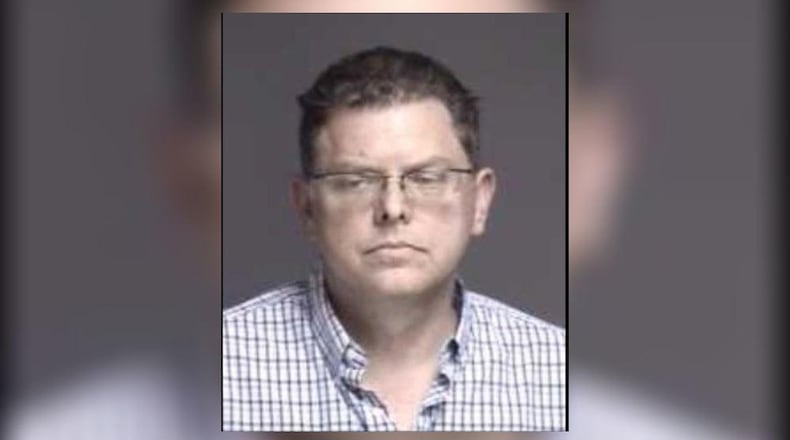Detectives acknowledged these and other details during the suppression hearing in Judge Timothy Tepe’s court.
Hall’s lawyers urged Tepe to exclude evidence gathered and statements made by Hall after questioning Springboro and Clearcreek Twp. detectives about the case.
Tepe has yet to rule, but indicated he was unlikely to suppress the evidence and ordered the five-day trial to be scheduled for April.
Hall “continued to volunteer stuff,” Tepe said in response to urging from Hall’s lawyers that the investigation was flawed and his constitutional rights violated.
RELATED: Ex-Realtor wants evidence seized from Springboro office suppressed
Although Hall asked for a lawyer, “questioning continued to happen,” lawyer Kevin Hughes said.
Hall remains free on $150,000 bail after his arraignment in July in Warren County Common Pleas Court on 17 counts of rape and sexual battery involving minor children.
Hall’s lawyers claimed evidence gathered from his Realtor office in Springboro and home in Clearcreek Twp. should not be used against him because none of the alleged crimes occurred at the home or office and the affidavit of the investigator “contains no information to support the proposition.”
In addition, Hall’s lawyers claimed some evidence seized was “not related to any of the allegations” and Springboro Detective Terry Dunkel’s affidavit included no allegations “that Hall took pictures of the alleged victims that would have any evidentiary value pertaining to the alleged charges.”
At Friday’s hearing, Hughes questioned Springboro Detective Terry Dunkel and Clearcreek Twp. Detective Kevin Barton on the witness stand.
RELATED: Victims in 20-year-old Warren County sex case were minors
Dunkel recalled Hall telling him an allegedly incriminating letter was intact in the trash can below his shredder as the detective waited in his house to take Hall in for questioning.
“It was intact,” Dunkel said of the evidence gathered after police served a search warrant at Hall’s home on Utica Road, north of Lebanon.
The Springboro detective also recalled how the case began with a contact from South Carolina from one of the alleged victims and progressed through four calls, “three with information in them,” during which Dunkel listened in as Hall and one of the alleged victims talked.
Dunkel testified that Hall said police could take what one alleged victim said “to the bank”.
“He repeated that phrase at least four times,” the detective added.
Barton said he turned on his microrecorder and engaged in “small talk” as they drove to the police station. Hughes questioned why the detective took these steps although Hall asked for a lawyer about six times.
Both detectives indicated Hall was not under arrest or handcuffed during the questioning and evidence gathering, a point Hughes questioned during the hearing.
About the Author

